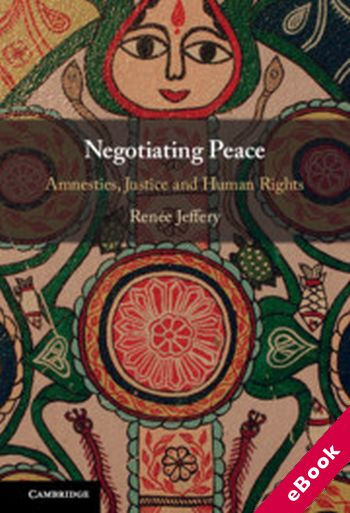
The device(s) you use to access the eBook content must be authorized with an Adobe ID before you download the product otherwise it will fail to register correctly.
For further information see https://www.wildy.com/ebook-formats
Once the order is confirmed an automated e-mail will be sent to you to allow you to download the eBook.
All eBooks are supplied firm sale and cannot be returned. If you believe there is a fault with your eBook then contact us on ebooks@wildy.com and we will help in resolving the issue. This does not affect your statutory rights.
In the past two decades, peace negotiators around the world have increasingly accepted that granting amnesties for human rights violations is no longer an acceptable bargaining tool or incentive, even when the signing of a peace agreement is at stake. While many states that previously saw sweeping amnesties as integral to their peace processes now avoid amnesties for human rights violations, this anti-amnesty turn has been conspicuously absent in Asia. In Negotiating Peace: Amnesties, Justice and Human Rights, Renée Jeffery examines why peace negotiators in Asia have resisted global anti-impunity measures more fervently and successfully than their counterparts around the world. Drawing on a new global dataset of 146 peace agreements (1980–2015) and with in-depth analysis of four key cases - Timor-Leste, Aceh Indonesia, Nepal and the Philippines - Jeffery uncovers the legal, political, economic and cultural reasons for the persistent popularity of amnesties in Asian peace processes.